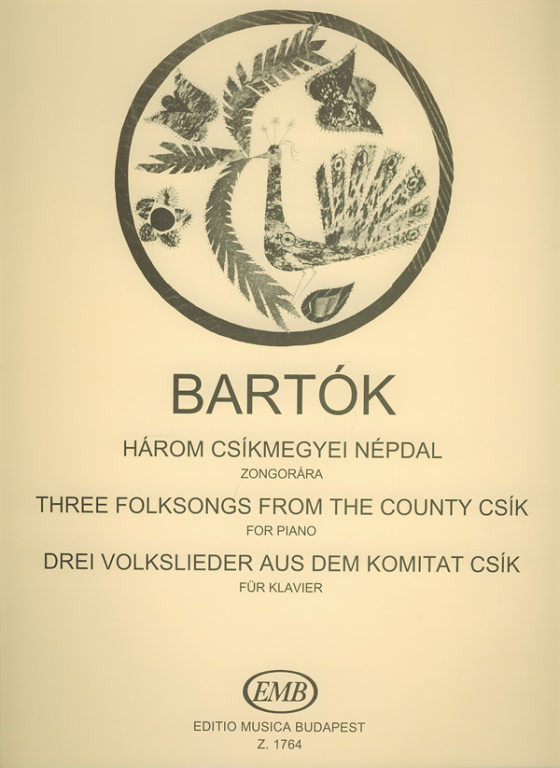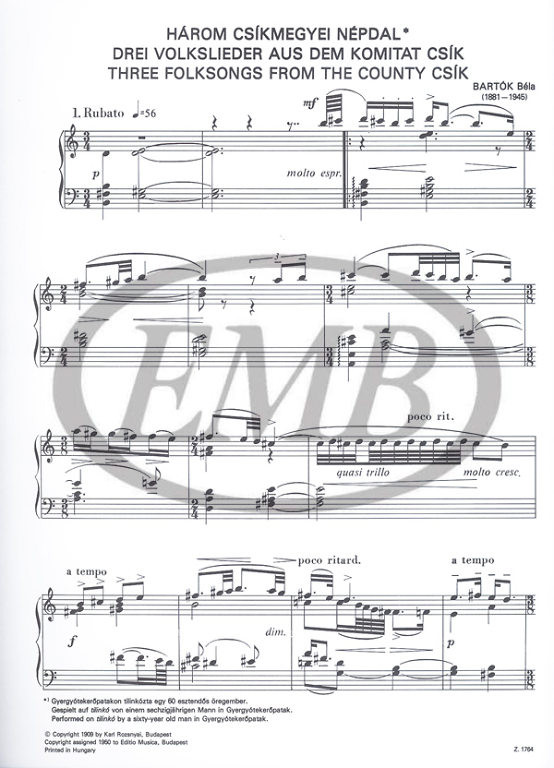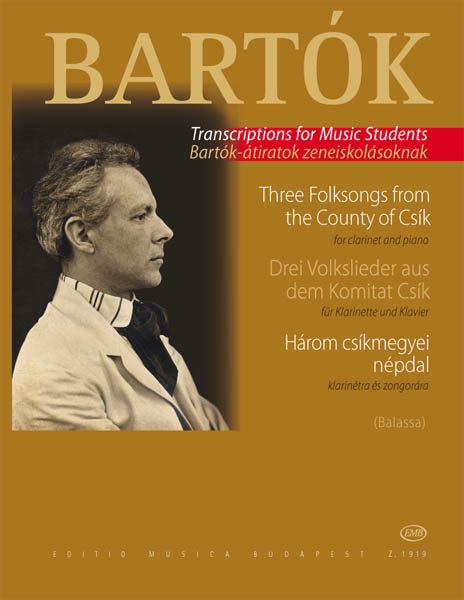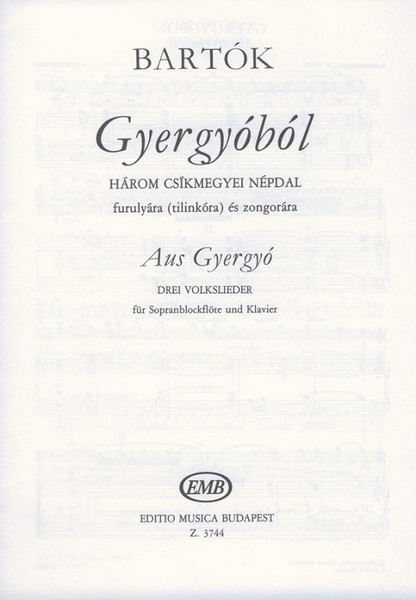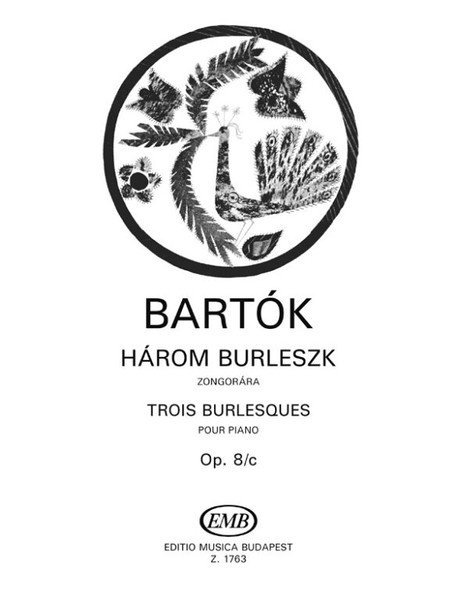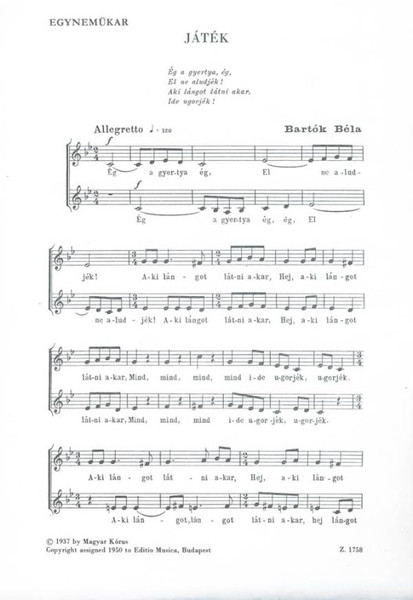Description
Bartók Béla: Three Hungarian Folksongs from the County of Csík / Editio Musica Budapest Zeneműkiadó / 1954 / Bartók Béla: Három csíkmegyei népdal
Paperback
Made in Hungary
Setting: Piano
Period: 20th Century
Language: Hungarian, English, German
Length: 4 pages
Format: Bach (23 x 30,2 cm)
Weight: 0.046 kg
Published: 1954
Publisher: Editio Musica Budapest Zeneműkiadó
Item number: 1764
ISMN: 9790080017647 / 979-0080017647
Hangszer/letét: Zongora
Korszak: XX. század
Nyelv: magyar, angol, német
Terjedelem: 4 oldal
Formátum: Bach (23 x 30,2 cm)
Súly: 0,046 kg
Első megjelenés: 1954
Kiadó: Editio Musica Budapest Zeneműkiadó
Katalógusszám: 1764
'In August [Bartók] heard the fifty-year-old Áron Balogh playing the peasant flute in Gyergyótekerőpatak in Csík district. He arranged three songs under the title From Gyergyó, for tilinkó [peasant flute] and piano, and the piano transcription of this occasional composition presented to Stefi Geyer as 'Three Hungarian Folksongs from the Csík District'. In all three versions Bartók retained the rich ornamentation of the flute version, and added a modal accompaniment to the melodies in a church mode. After the first two rubato melodies, notated in alternating time signatures, he concluded with a melody in strict 'giusto' rhythm. It is in this latter that the pentatonic skeleton beneath the diatonic surface can best be felt. Bartók notated the pentatonic vocal version of this melody on this same field trip, and arranged it in the series 'Eight Hungarian Folksongs'.'
[Bartók 1907] 'Augusztusban a Csík vármegyebéli Gyergyótekerőpatakon hallotta az 50 éves Balogh Áron furulyajátékát. Három dallamot Gyergyóból, tilinkóra és zongorára címmel (BB 45a) dolgozott fel - ennek a Geyer Stefinek ajándékozott alkalmi kompozíciónak a zongoraátirata a Rozsnyai Károly kiadásában megjelentetett 'Három csíkmegyei népdal' (BB 45b). Bartók mindhárom dallamban megőrizte a furulya-verzió gazdag díszítéseit, az egyházi hangnemben mozgó dallamokat pedig modális kísérettel látta el. Az első két - váltakozó ütemekben lejegyzett - rubato-dallam után befejezésképpen feszes, giusto-ritmusú dallamot helyezett el. Utóbbiban érződik leginkább a diatonikus felszín alatt megbúvó pentaton váz - a dallam ötfokú vokális változatát Bartók ugyanezen a gyűjtőúton jegyezte le, majd a 'Nyolc magyar népdal' című sorozatban dolgozta fel (BB 47/5).
